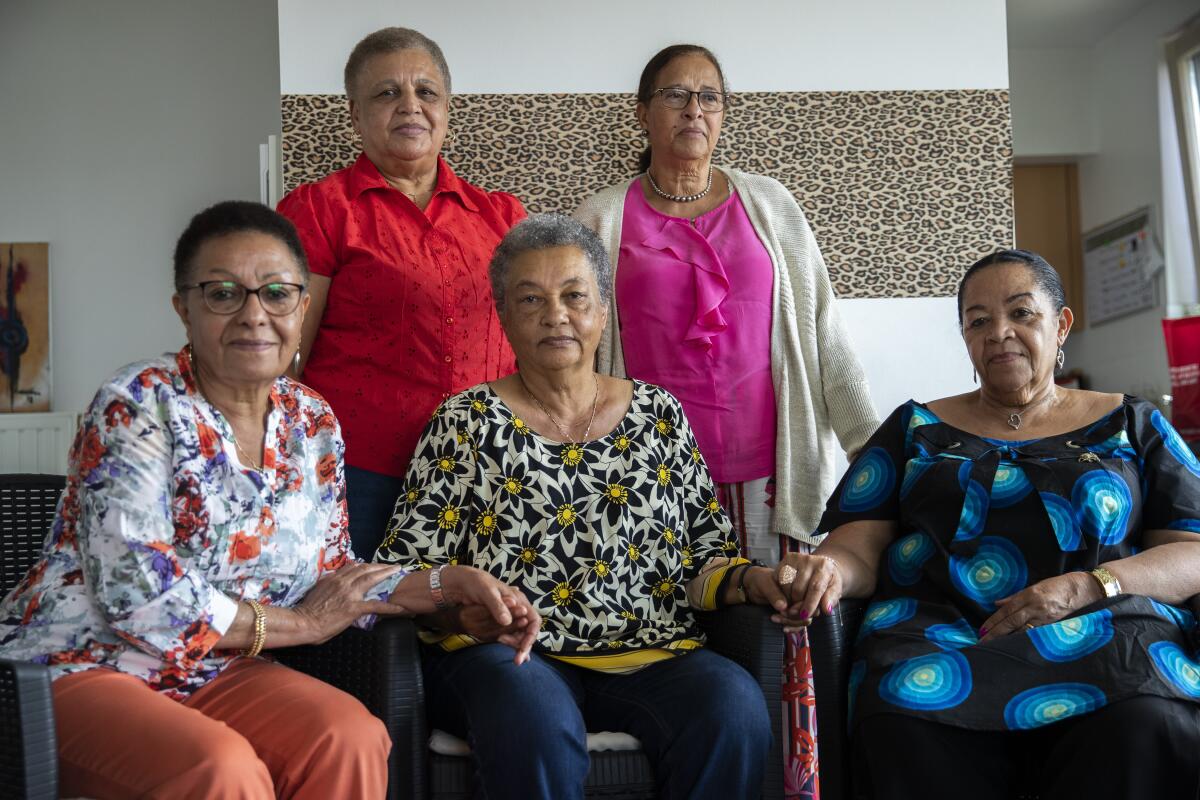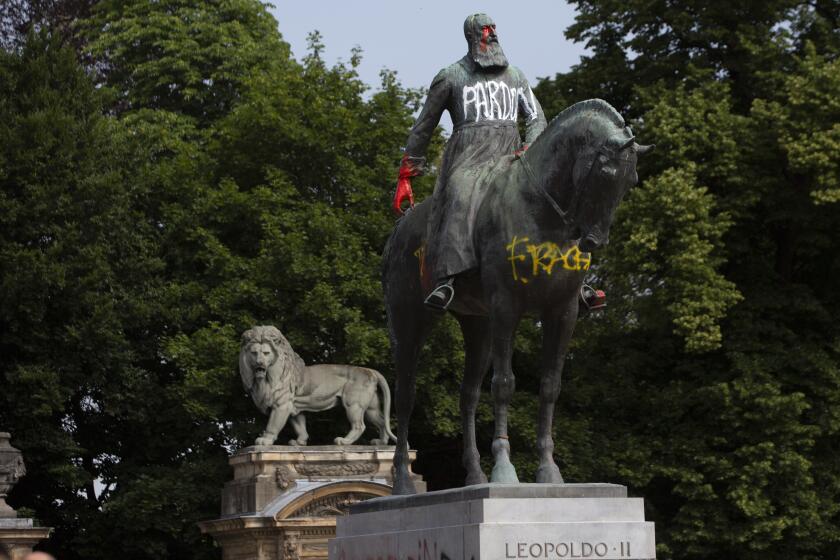Women taken from African mothers by Belgium sue for crimes against humanity

BRUSSELS — Five biracial women who were born in Congo when the country was under Belgian rule and were then taken away from their Black mothers and separated from their African roots are suing the Belgian state for crimes against humanity.
Lea Tavares Mujinga, Monique Bintu Bingi, Noelle Verbeken, Simone Ngalula and Marie-Jose Loshi hope Belgium will finally recognize its role in the suffering endured by the thousands of mixed-race children, known as “metis″ children, who were snatched from families and placed in religious institutions and homes by the Belgian authorities who ruled Congo from 1908 to 1960.
Their case is being examined Thursday by a Brussels court.
The five women, all born between 1945 and 1950, filed their lawsuit last year amid growing demands that Belgium reassess its colonial past.
In the wake of protests against racial inequality in the U.S., several statues of former King Leopold II, who is blamed for the deaths of millions of Africans during Belgium’s colonial rule, have been vandalized in Belgium, and some have been removed.
In 2019, the Belgian government apologized for the state’s role in taking thousands of babies from their African mothers. And for the first time in the country’s history, a reigning king expressed regret last year for the violence carried out by the former colonial power.
When the Black Lives Matter protests reached Belgium, they targeted the bloodstained legacy of King Leopold II.
The women’s lawyers said they were between 2 and 4 years old when they were taken away at the request of the Belgian colonial administration, in cooperation with the local Roman Catholic Church authorities.
According to legal documents, in all five cases the fathers did not exercise parental authority and the Belgian administration threatened the children’s Congolese families with reprisals if they refused to let them go.
The children were placed at a religious mission in Katende, in the province of Kasai, with the Sisters of St. Vincent de Paul. They lived there with some 20 other mixed-race girls and Indigenous orphans in very hard conditions.
According to the lawyer, the Belgian state’s strategy was aimed at preventing interracial unions and isolating metis children, known as “children of shame,” to make sure they would not claim a link with Belgium later in their lives.
Controversy over Belgium’s renovated Royal Museum for Central Africa is in some ways akin to the debate in the United States over Civil War memorials.
After independence, the legal documents claim that the children were left abandoned by both the state and the church, and that some of them were sexually molested by militia fighters. The women have requested compensation of 50,000 euros (about $58,000) each.
“This is not for the money,” lawyer Michelle Hirsch said. “We want a law that can apply to all so that the Belgian state recognizes the crimes committed and the suffering endured by metis children.”
More to Read
Sign up for Essential California
The most important California stories and recommendations in your inbox every morning.
You may occasionally receive promotional content from the Los Angeles Times.












